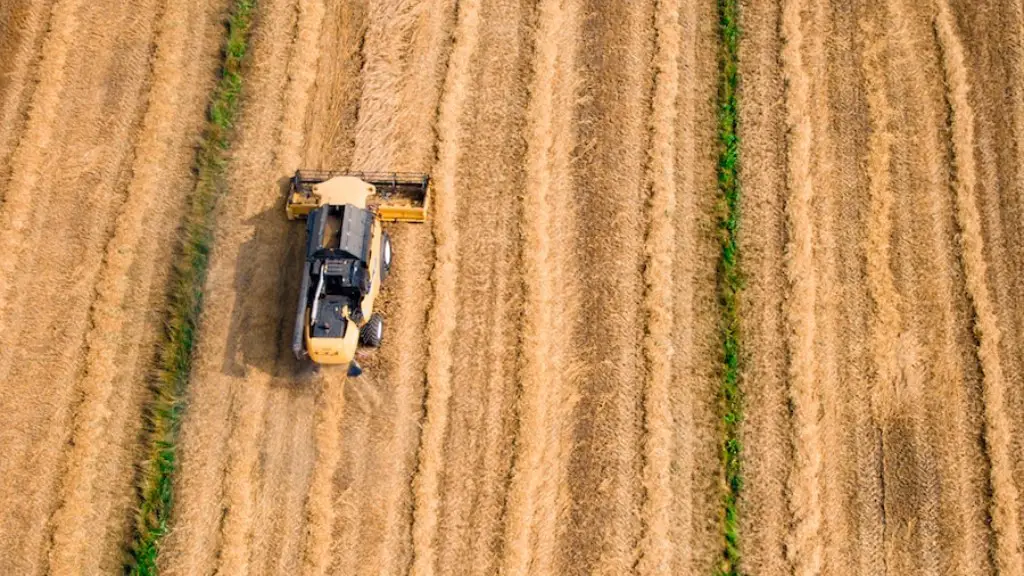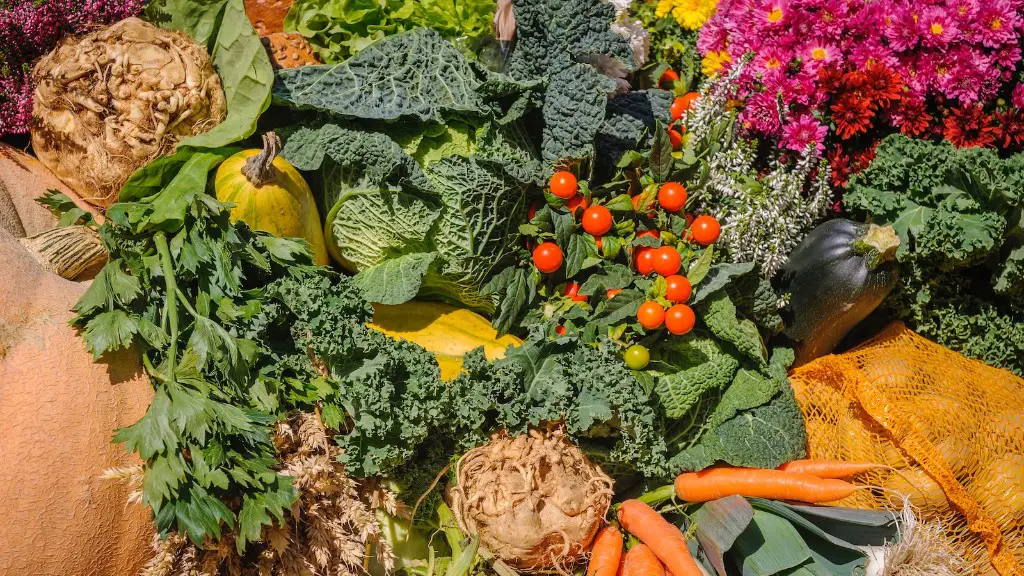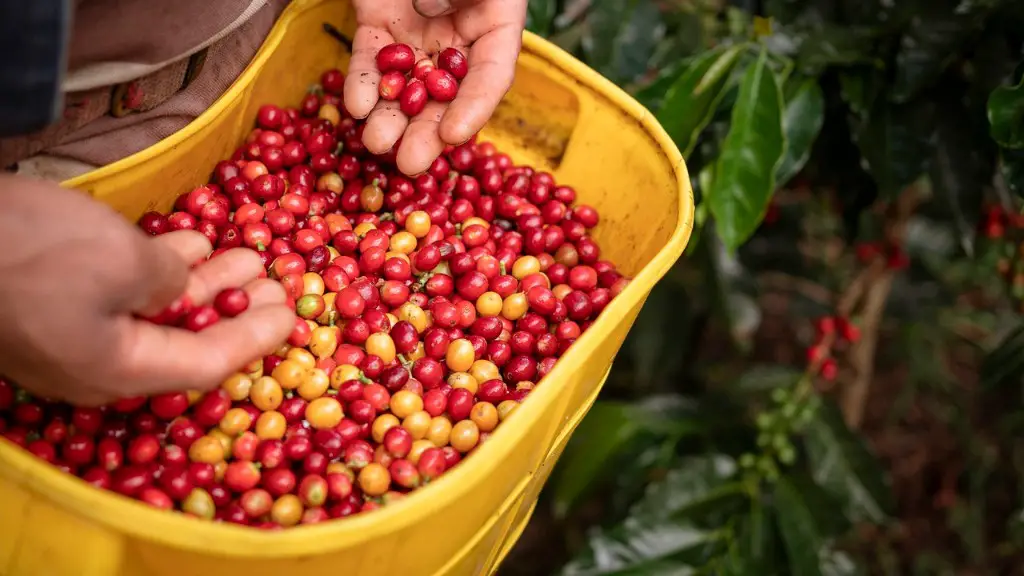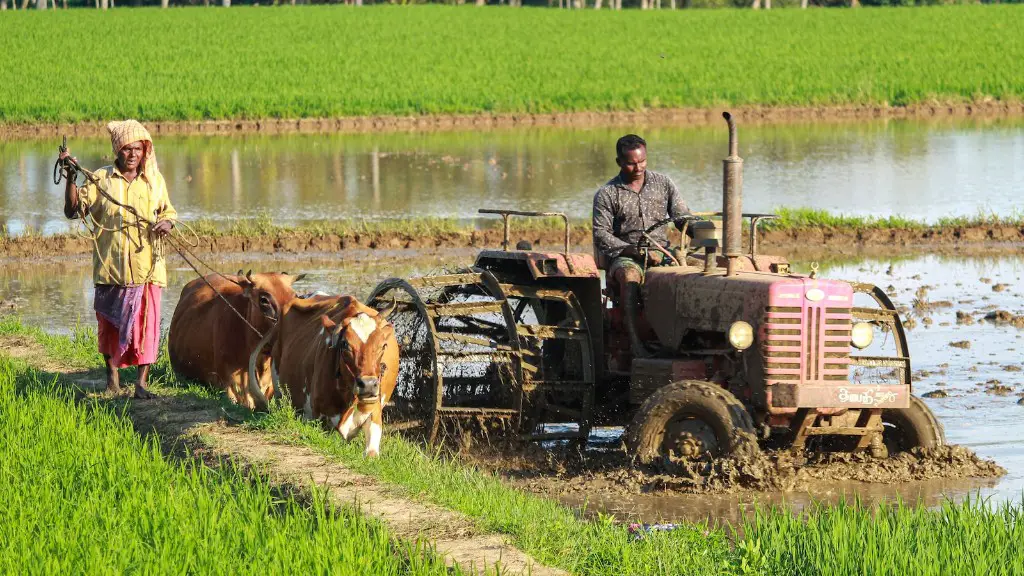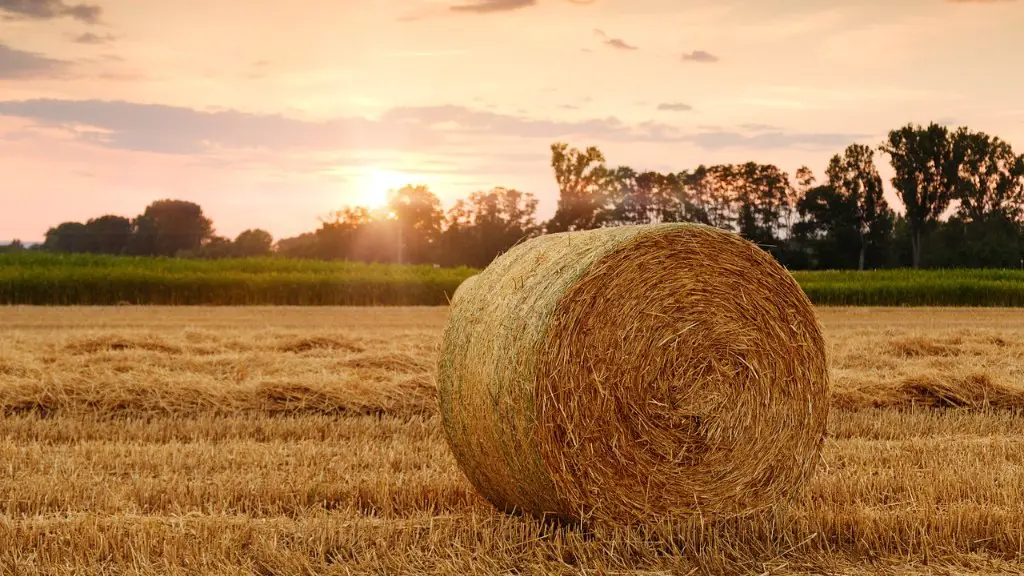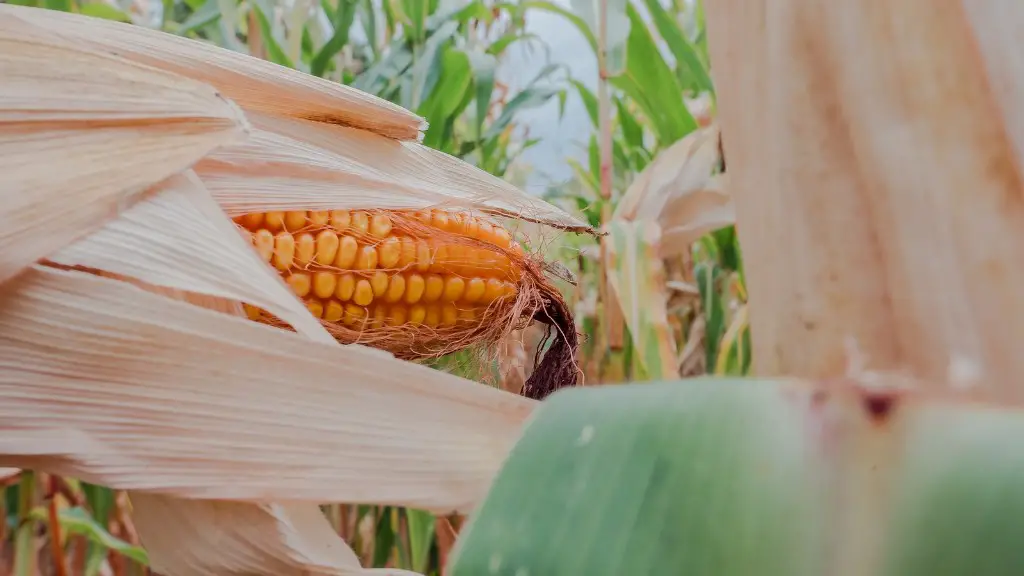The negative impacts of agriculture are often overlooked in favor of the positives. However, there are a number of ways in which agriculture can be harmful to the environment and to those who work in the industry. Here are some of the ways in which agriculture can be bad:
Agriculture is bad for the environment because it is a leading cause of deforestation, water pollution, and soil erosion. Agriculture is also a leading cause of climate change, as it is responsible for greenhouse gas emissions.
What are negative effects of agriculture?
Agricultural contaminants, including pesticides, nitrates, and phosphorus, can have a significant impact on ground and surface water quality. This can affect both urban and rural communities, as well as the environment. Synthetic fertilizers can deplete soil health, and require the intensive use of fossil fuels to produce. This can lead to environmental degradation and risk to human health.
Farming allowed for the domestication of plants and animals, which led to the development of civilizations. However, this also led to the rise of deep class divisions, as those who controlled the food sources had power over those who did not. This created a lot of suffering for many people throughout history.
What are the 5 major consequences of agriculture
Agriculture can have a significant impact on the environment. Five of the most significant environmental effects of agriculture are soil fertility loss, eutrophication of water bodies, deforestation, climate change and pesticide pollution.
Soil fertility loss is a major problem caused by agriculture. It occurs when the nutrients in the soil are depleted faster than they can be replaced. This can lead to a decline in crop yields and eventually lead to soil infertility.
Eutrophication of water bodies is another serious environmental effect of agriculture. It occurs when excessive nutrients from fertilizers and manure run off into rivers and lakes, causing an overgrowth of algae and aquatic plants. This can lead to a decrease in oxygen levels in the water, which can be harmful to fish and other aquatic creatures.
Deforestation is another impact of agriculture. It occurs when trees are cleared to make way for farmland. This can lead to soil erosion, loss of habitat for wildlife, and climate change.
Climate change is another significant environmental effect of agriculture. Agriculture contributes to greenhouse gas emissions, which are a major cause of climate change.
Pesticide pollution is another environmental effect of agriculture. Pesticides can contaminate water supplies and soil, and can be harmful to humans
The main problems that farmers face in India are poor access to reliable and timely market information, absence of supply & demand forecasting, poorly structured and inefficient supply chains, inadequate cold storage facilities and shortage of proper food processing units. These problems lead to large intermediation between the farmers and the consumers, which results in the farmers not getting a fair price for their produce and the consumers having to pay higher prices for food.
What is the most problem in agriculture?
There are a number of factors that contribute to the loss of agricultural land. One of the most significant is the conversion of land to other uses, such as urban development or mining. Other causes of land loss include erosion, deforestation, and natural disasters. The decrease in the varieties of crops and livestock produced is also a major problem in agriculture. This can be caused by a number of factors, such as the loss of traditional knowledge, the introduction of new crops or livestock that are more profitable, or the consolidation of farms.
Forced to choose between limiting population or trying to increase food production, we chose the latter and ended up with starvation, warfare, and tyranny. This was a crucial mistake in human history that archaeologists are still studying. By trying to increase food production, we put too much strain on the resources available and ended up causing more harm than good.
What are the 10 problems of agriculture?
There are many reasons why you should consider relocating to Canada today! Some of the reasons include the lack of modernization and mechanization in many parts of the world, illiteracy, ignorance, lack of funds, poor infrastructure/ lack of social amenities, absence of modern storage/processing facilities, loss of land to natural disaster, and access to land and fertilizers.
We need to set the table to address the triple challenge of feeding a growing population, providing a livelihood for farmers, and protecting the environment. We need to do this by:
1. Increasing food production in a sustainable way
2. Improving access to food
3. reducing food waste
If we can do this, we can make progress on all three challenges and create a more sustainable future.
How does agriculture affect human life
Agriculture has a profound impact on society. It supports livelihoods by providing food, habitat, and jobs. It also provides raw materials for food and other products. And, it helps build strong economies through trade.
It is clear that education is essential for the modernisation of farming methods. However, the lack of mechanized equipment and illiteracy of most farmers makes it difficult to implement modern farming methods. Many farmers still stick to archaic farm practices which results in many problems of agricultural marketing in Nigeria.
What is wrong with modern agriculture?
We are facing a major problem with our food supply. The foods we eat are becoming less and less nutrient-rich, and they are contaminated by pesticides, herbicides, and fungicides. Global conventional agriculture also has negative social consequences, including land-grabbing, unfair working conditions, and excessive waste. We need to find a way to produce food that is healthier for us and more sustainable for the planet.
The pros of agriculture outweigh the cons. Agriculture allowed humans to specialize and become experts in their field. The domestication of wheat, corn, and rice led to the creation of civilization. Agriculture also allowed for the development of artists, leaders, and scribes. The only downside to agriculture is that there are conflicts over access to food supply and weather might damage crops.
What are the harmful effects of agricultural practices on the environment
Agriculture is one of the main sources of pollution in the environment. The use of artificial fertilizers and pesticides in agriculture pollutes the soil, water, and air. These pollutants can cause serious health problems for people and animals.
Agriculture and AKST can have a significant impact on a range of health issues, both positive and negative. On the positive side, AKST can help to improve crop yields and quality, which can in turn reduce undernutrition and improve the overall health of the farming community. On the negative side, however, AKST can also lead to increased exposure to hazardous chemicals and pollutants, which can increase the risk of chronic diseases, infectious diseases, and food safety issues. In addition, AKST can also impact environmental and occupational health, both through the use of pesticides and other chemicals, and through the increased use of machinery, which can lead to increased accidents and injuries.
What are at least 3 cons to our agricultural practices?
Animal agriculture has a profound and often negative impact on the environment. It can cause pollution, greenhouse gas emissions, biodiversity loss, disease, and significant consumption of land, food, and water. Despite this, it remains a vital part of many people’s lives and livelihoods. We must find ways to produce food sustainably, without compromising the environment.
Intensive farming has several disadvantages that can impact both the environment and the farmers themselves. The use of chemical fertilizers, pesticides, and insecticides can lead to pollution and the spread of diseases. Additionally, overcrowding can lead to animal cruelty and the spread of misinformation.
Conclusion
There are many ways in which agriculture can be considered bad. First, it can lead to the depletion of water resources, as farming requires a lot of water for irrigation. Second, it can lead to soil degradation and erosion, as the land is often plowed and tilled to prepare it for planting. This can result in the loss of topsoil, which is essential for plant growth. Third, agriculture can pollute the environment, as the use of pesticides and fertilizers can contaminate groundwater and surface water. Finally, agriculture can have a negative impact on biodiversity, as it can lead to the loss of natural habitat and the fragmentation of ecosystems.
While there are many benefits to agriculture, there are also several ways in which it can be detrimental. Agriculture can lead to soil erosion and loss of topsoil, which can reduce the land’s fertility and ability to support plant life. Pesticides and herbicides used in agriculture can contamination groundwater, and agricultural runoff can pollute waterways. Agriculture can also have a negative impact on local wildlife, as animals can be displaced or harmed by changed habitats, pesticides, and other farm machinery.
